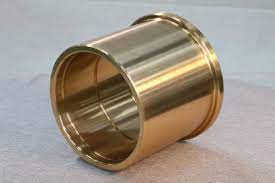Introduction to Brass Metal in Custom Machine Design
Brass, an alloy of copper and zinc, has been a cornerstone material in the world of engineering and design for centuries. Its unique properties make it an ideal choice for custom machine design, offering a blend of durability, machinability, and aesthetic appeal. In this article, we explore the art of custom machine design using brass metal, highlighting its characteristics, applications, and benefits.
Characteristics of Brass Metal
Brass is renowned for its golden-like appearance, making it a favorite for decorative applications. However, its appeal extends far beyond its looks. Brass is highly corrosion-resistant, making it suitable for use in various environments, including those with high humidity or exposure to chemicals. Additionally, brass is a highly malleable and ductile metal, allowing it to be easily shaped and formed into intricate designs without compromising its strength.
Applications of Brass in Custom Machine Design
The versatility of brass makes it a popular choice for custom machine design across various industries. In the automotive sector, brass components are used in engines, transmission systems, and braking systems due to their heat resistance and low friction properties. In the electronics industry, brass is utilized in the manufacturing of connectors, terminals, and switches, thanks to its excellent conductivity. In architectural applications, brass is often used for door handles, hinges, and decorative elements due to its aesthetic appeal and durability.
Benefits of Using Brass in Custom Machine Design
One of the key benefits of using brass in custom machine design is its machinability. Brass is relatively easy to machine, allowing for the creation of intricate and precise components with minimal effort. Additionally, brass is a cost-effective material compared to other metals, making it an attractive option for custom machine design projects with budget constraints. Furthermore, brass is highly recyclable, making it an environmentally friendly choice for sustainable design practices.
Case Study: Custom Machine Design with Brass
To illustrate the practical application of brass in custom machine design, let’s consider a case study of a manufacturer designing a specialized valve for industrial use. The manufacturer chose brass as the material for the valve body due to its corrosion resistance and durability. Additionally, the machinability of brass allowed for the creation of complex internal components with tight tolerances, ensuring the valve’s optimal performance. The final product not only met the client’s specifications but also exceeded expectations in terms of quality and longevity.
Conclusion
In conclusion, brass metal plays a crucial role in the art of custom machine design, offering a unique blend of characteristics that make it ideal for a wide range of applications. Its durability, machinability, and aesthetic appeal make it a favorite among designers and engineers looking to create high-quality, custom machines that stand the test of time. Whether used in automotive, electronics, or architectural applications, brass continues to be a material of choice for those seeking precision and reliability in their designs.


